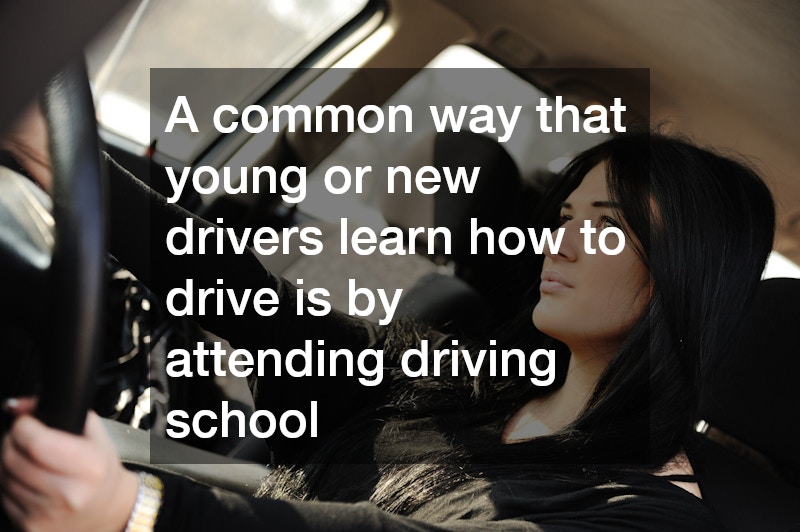

A common way that young or new drivers learn how to drive is by attending driving school. While some parents or family members may take on the responsibility of teaching a teen driver how to safely drive, a facility that specializes in teaching folks how to drive uses tried and true methods to ensure that the new driver feels comfortable behind the wheel before taking a test. Driving schools aren’t just for young and inexperienced drivers. If you’re working on transitioning to a career that requires you to have CDL training, you can prepare to perform well on quality driving testing and get quick CDL training if you have a driving tutor preparing you for the driving test and lessons you may need down the road to continue to expand your skills.
Driving may be something that many people learn how to do every year, but it can be intimidating for new drivers. If your teen or another young person in your life struggles with driving anxiety, a driving school instructor will be prepared to handle that and help the new driver feel confident in their ability to drive. They may also help them pass their driving exam. CDL training can be important for anybody who wants to learn how to drive.
Your son will be graduating high school next month. As parents you have limited screen usage until this school year. This year you decided to not impose limits because when he is in college, he will have to control that himself and we would rather have him struggle with that while in high school rather than fail college classes. He likes to game, but he is not very social otherwise. First semester went okay. Second semester he was failing one of the three classes he needs to graduate. You made sure he knew how to get help if he wanted it and left it at that. He is now passing all of his classes. He is getting a lot of Ds even though he is capable of better. We are still staying out of it. He knows what to do.
He has been excited about going college and getting away from his unreasonable parents who expect him to be responsible, but he has been especially argumentative and disrespectful lately. You think he may be experiencing some anxiety, but he does not acknowledge it, maybe not even to himself. Finding a way to help him without creating yet another conflict has been a struggle.
Texting and Driving Do Not Mix!
What worries you the most, of course, is the phone being a distraction when your son is driving. It is one thing to fail a class because he is gaming too much, but the damage, and loss of life, that can occur when technologies interrupt driving is much worse. Even when parents to the added precaution of paying for driving and traffic lessons, they still cannot control what their young drivers don when they are in the car alone. Professional driving courses can help people of all age master the basic skills that are needed to be safe, and even the most beginner driving courses will address the need to avoid texting and driving at all costs, but actions speak louder than words. Beginner driving schools can tell new drivers what is expected of the, but as parents you have the opportunity to model that behavior every day. you do not have to pay for lessons on a driving course to show your teenage drivers the danger of not putting your phone away while you are behind the wheel.
Technology can be so addictive, but as a necessary part of life many parents struggle with how to balance responsibility with access. Even when parents try to let their children self regulate when friends are gaming on line it is difficult for some players to disconnect when they are on a mission of some kind together. Some students are procrastinators any way so they might find something else to distract them if not screens. Learning to take ownership and set priorities can be difficult when executive functioning skills are still developing well into the 20s. The obsession with technology, however, does not end with playing online games so long that you damage your grades. If you make the decision to text and rive you are putting everyone at risk.
Unfortunately, the fatality rate for drivers between the ages of 16 and 19 is four times that of drivers between the ages 25 and 69 years. In fact, in their first year on the road, teenagers are almost 10 times more likely to be in a crash. Part of the problem is inexperience driving, but a good portion is the problem of texting and driving. So while you are considering how to limit a teen’s technology time without over parenting, you might as well also demonstrate the same lessons that driving courses teach: do not text and drive!